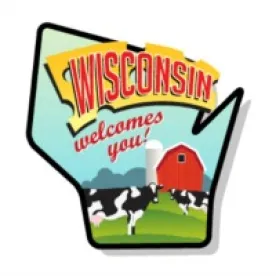On April 15, 2020, after a series of extraordinary sessions, the Wisconsin State Legislature passed and the governor signed 2019 Wisconsin Act 185 as Wisconsin’s COVID-19 response legislation to provide continued economic relief to individuals and businesses at the state level. The tax provisions of the new legislation principally update the Wisconsin income and franchise tax statutes by adopting selected tax-related provisions of the federal Coronavirus Aid, Relief, and Economic Security Act of 2020 (the “CARES Act”).
While this Legal Update provides a brief summary of the tax-related provisions in Wisconsin’s COVID-19 Act, von Briesen has released a detailed discussion on the federal CARES Act’s benefits for business and individuals to which most of the Wisconsin provisions relate. Legal Updates discussing these provisions can be found here:
- CARES Act Paycheck Protection Program
- Business Tax Benefits in the CARES Act
- Individual Tax Benefits in the CARES Act
- Retirement Plan Benefits: The CARES Act and Other Tax Planning Considerations
The Wisconsin COVID-19 Act includes the following tax components:
Paycheck Protection Program
The CARES Act expanded small business loans under the SBA’s existing section 7(a) loan program through the “Paycheck Protection Program.” These loans are fully guaranteed by the federal government and no collateral or personal guarantees are required. If the loan proceeds are used for the purposes specified in the CARES Act, the principal amount of the loan may be forgiven. The Wisconsin COVID-19 Act adopts the federal tax treatment of the loans and provides that the forgiven amount does not constitute taxable income.
Depreciation of Qualified Improvement Property
The CARES Act retroactively amended the depreciable life of “qualified improvement property” to reduce the depreciable life of such property from 39 to 15 years. The Wisconsin COVID-19 legislation adopts the same change effective as of January 1, 2018. As a result, both federal and Wisconsin 2018 and 2019 tax returns can be amended to claim any refund arising due to the additional depreciation. Already existing federal law allows for additional federal “bonus” depreciation to be claimed for qualified improvement property that exceeds the Wisconsin benefit.
Changes to Charitable Contributions
The Wisconsin COVID-19 Act adopts the provisions of the CARES Act which allows non-itemizing taxpayers to claim up to a $300 “above-the-line” charitable contribution deduction for cash contributions made in tax years that begin in 2020. Itemizing taxpayers can deduct cash contributions up to 100% of his or her adjusted gross income with any excess carried forward. Partners or S corporation shareholders must elect to have the provision apply to obtain the deduction for contributions made by their partnership or S corporation. The allowable deduction on the donation of food inventory is increased from 15% to 25% of taxable income.
Exclusion for Certain Employer Payments of Student Loans
Wisconsin is adopting the CARES Act provisions that allow an employee to exclude from income up to $5,250 in employer student loan payments made on behalf of the employee for payments made before January 1, 2021.
Suspension of Retirement Account Early Withdrawal Penalties
The CARES Act removes the 10% penalty for early withdrawals from retirement accounts for coronavirus-related distributions. The eligible distributions are limited to $100,000 for any taxable year subject to certain requirements. The Wisconsin legislation likewise provides that the state’s early withdrawal penalty will not be charged on such distributions.
Penalties and Interest on Late Tax Payments
Wisconsin’s COVID-19 Act also permits the Secretary of the Department of Revenue to waive interest and penalties for any person who owes, but fails to remit, general fund taxes (which include income, franchise, sales and various excise taxes), or transportation fund taxes or fees (for example, the motor vehicle fuel tax). The taxes on which the penalties or interest are imposed must have accrued during the public health emergency that was declared by Governor Evers on March 12, 2020. Waivers of interest and penalties will be reviewed on a case-by-case basis to determine if the failure to pay is due to the effects of the COVID-19 pandemic.




 />i
/>i

